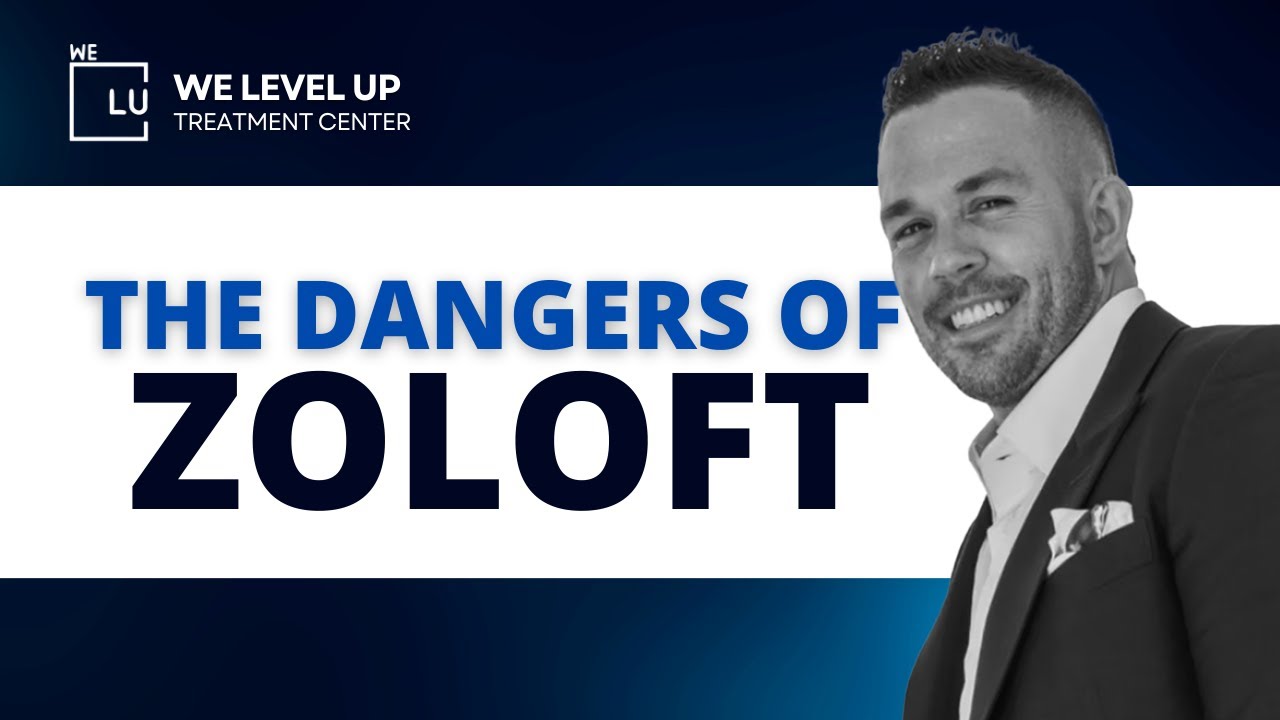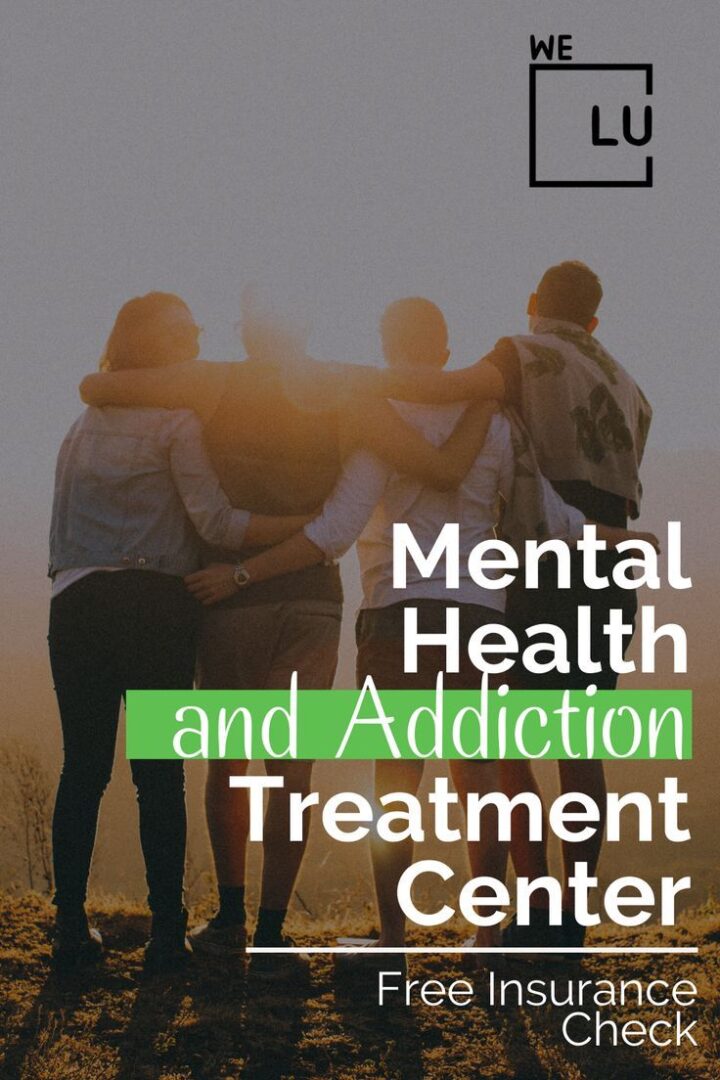Do You Have an OCD Relationship Problem?
Relationship OCD (ROCD) is a different type of Obsessive-Compulsive Disorder. The good news is that it can be improved and controlled by going to therapy to help with a more balanced life. Remember, you’re not alone; the We Level Up Texas Treatment Center can help you find OCD relationship treatment for a journey to recovery.
What is Relationship OCD?
Obsessive-compulsive disorder (OCD) is a long-lasting disorder in which a person experiences uncontrollable thoughts or obsessions, engages in repetitive behaviors or compulsions, or both. People with OCD have symptoms that can cause distress or interfere with daily life. However, treatment is available to help people manage their symptoms and improve their quality of life.
Relationship OCD Symptoms
People with OCD may have obsessions, compulsions, or both. Obsessions are repeated thoughts, urges, or mental images that are unwanted, and make most people seem anxious. The most common obsessions include:
- The fear of germs or contamination
- A phobia of forgetting or misplacing something
- Worrying about losing control over one’s behavior
- Aggressive thoughts toward others or oneself
- Unwanted, forbidden, or taboo thoughts involving sex, religion, or harm
- Desire to have things symmetrical or in perfect order
Compulsions are repetitive behaviors a person feels the urge to do. It’s a response to an obsession and some common behaviors include:
- Excessive cleaning or handwashing
- Ordering or arranging items in a particular, precise way
- Constantly checking things in their home like seeing if the door is locked or the oven is off
- Compulsive counting
- Praying or repeating words silently
Not all repeated thoughts are obsessions, and not all rituals or habits are compulsions. However, people with OCD generally:
- Most can’t control their obsessions or compulsions, even when they know it’s a bit extreme.
- They can spend more than an hour a day on their obsessions or behaviors.
- They don’t get pleasure from their compulsions but may feel temporary relief from their anxiety.
- Experience significant problems in daily life due to these thoughts or behaviors.
Some people with OCD may have a tic disorder as well which involves repeating movements or sounds. There are 2 types of tic disorders. Motor tics are sudden and brief repetitive movements. These movements include eye blinking, facial grimacing, shoulder shrugging, and head or shoulder jerking. Vocal tics are things like having to constantly clear their throat, sniffing, or making grunting sounds. It is also common for people with OCD to have a mood disorder or anxiety disorder.
OCD symptoms can begin anytime in a person’s life but usually start between late childhood and young adulthood. Most people with OCD are diagnosed as young adults.
The symptoms of OCD may start slowly and can go away for a while or worsen as time passes. During times of stress, the symptoms often get worse. A person diagnosed with OCD can change over time.
People with OCD might avoid problems that might trigger their symptoms or they may use drugs or alcohol to cope with them. Many adults with OCD understand that their behaviors might not make sense. However, children may not realize that their behavior isn’t normal and often fear that something terrible will happen if they don’t do certain compulsive rituals. Most parents or teachers can recognize OCD symptoms in children.
If you think you may have OCD, talk to a healthcare provider near you or our local We Level Up Texas Treatment Center. If these symptoms are left untreated, they can become severe and interfere with daily life.


Skip To:
Learn More:
Get Help. Get Better. Get Your Life Back.
Searching for Accredited Drug and Alcohol Rehab Centers Near You? We Level Up Texas Is Opening Soon!
Even if you have failed previously and relapsed, or are in the middle of a difficult crisis, we stand ready to support you. Our trusted behavioral health specialists will not give up on you. When you feel ready or just want someone to speak to about therapy alternatives to change your life call us. Even if we cannot assist you, we will lead you to wherever you can get support. There is no obligation. Call our network hotline today.
FREE Addiction Hotline – Call 24/7What Are the Seven Signs You Suffer From Relationship OCD?
Relationship OCD, or ROCD, is a form of obsessive-compulsive disorder that leads to extreme doubts and fears about romantic relationships. Here are seven signs you might be dealing with ROCD:
1. Seeking constant reassurance from your partner or others.
2. Having intrusive thoughts about doubts or fears in your relationship.
3. Overanalyzing interactions with your partner.
4. Comparing your relationship to others and feeling insecure.
5. Feeling the need to test your feelings for your partner constantly.
6. Being fearful of making the wrong decisions in the relationship.
7. Having issues with trusting your feelings or intuitions about your relationship.
What Are The Four Risk Factors for OCD?
- Genetics: If the first-degree relative (parent or sibling) has OCD, there is an increased chance of developing the disorder. Scientists haven’t been able to detect one gene or set of genes that lead to OCD, but they continue to explore the connection between genetics and OCD.
- Biology: By studying the image of the brain, people with OCD have differences in the frontal cortex and subcortical structures of the brain. These areas of the brain can control behavior and emotional responses.
- Temperament: Some research has found that people who exhibit more reserved behaviors, experience negative emotions, and show symptoms of anxiety and depression as children are more likely to develop OCD.
- Childhood trauma: Some studies have reported an association between childhood trauma and obsessive-compulsive symptoms. More research is needed to understand this relationship.
Where you are experiencing these signs, and they are significantly impacting your well-being and relationships, get support from a mental health professional experienced in treating OCD or relationship issues. Call the We Level Up Treatment Center network in Texas and beyond. We stand ready to help.
OCD Relationship Disorder Causes
Children who suddenly develop OCD symptoms or experience a worsening of OCD symptoms after a streptococcal infection may be diagnosed with Pediatric Autoimmune Neuropsychiatric Disorders Associated with Streptococcal Infections (PANDAS).
OCD Relationships Statistics
Here are some unusual and interesting statistics related to Relationship OCD (ROCD)
Nature and Nurture Play a Role in Developing OCD
Relationship OCD indeed has a genetic component. If your parent or sibling has OCD, there is a risk of you developing it as well. However, that does not mean that you will have OCD, because both genetics and environment play major roles.
Brain Circuitry Involvement
Neuroimaging studies have revealed differences in the brain circuitry of individuals with OCD, with the frontal lobe being one of the areas frequently implicated in the disorder.
Having OCD isn’t just about Neatness
Although cleanliness and order are commonly associated with OCD, the condition can also cause unrelated obsessions and fears, such as harming oneself or others and contamination fears.
There are several types of OCD
- Checking is characterized by a constant need to check whether the oven is off or homework is completed.
- Contamination is marked by fear of germs, dirt, or mental contamination and repetitive washing, cleaning, and disinfecting.
- Symmetry and order are the need to arrange things in a particular manner to avoid distress.
- Rumination or intrusive thoughts are often religious, violent, or sexual.
- Hoarding is the urge to collect and keep possessions.
Relationship OCD (ROCD) is a specific subtype of Obsessive-Compulsive Disorder (OCD) characterized by intrusive thoughts and anxieties about one’s romantic relationship. While less common than other forms of OCD, it can be a significant source of distress for those who experience it. Here are some unusual and interesting statistics about ROCD:
- Prevalence: Estimates suggest that ROCD affects around 1-2% of the population, with women being slightly more likely to experience it than men. However, due to the shame and stigma often associated with OCD, the true prevalence is likely higher.
- Age of onset: ROCD typically starts in young adulthood, between 18 and 25.
- Relationship status: Interestingly, ROCD can occur in healthy and unhealthy relationships. Some studies have found that individuals in abusive relationships are more likely to experience ROCD symptoms.
- Common obsessions: People with ROCD often have intrusive thoughts about their partner’s feelings, their feelings, or the compatibility of the relationship. These thoughts can be about things like:
- Not loving their partner enough
- Being attracted to someone else
- Their partner not being attracted to them
- The relationship not being “right”
- Compulsions: To try to relieve the anxiety caused by these obsessions, people with ROCD may engage in compulsions such as:
- Repeatedly checking their feelings for their partner
- Comparing their relationship to others
- Seeking reassurance from their partner or others
- Avoiding situations that trigger their obsessions
- Impact on relationships: ROCD can have a significant negative impact on relationships. It can lead to increased conflict, decreased intimacy, and even relationship dissolution.
- Treatment: Fortunately, ROCD is highly treatable with cognitive-behavioral therapy (CBT), specifically exposure and response prevention (ERP). ERP helps individuals face their intrusive thoughts and resist compulsions, ultimately reducing their anxiety and improving their relationship functioning.
While these statistics are not uncommon, they provide insight into the prevalence and impact of Relationship OCD on individuals and their relationships.
Life with OCD Relationship Disorder
People with OCD are usually aware that their compulsions are irrational or excessive but are unable to control their urge to resist them. OCD can take up many hours of a person’s day and may affect their work, study, family, and social relationships. Being supportive and understanding is easier when family members and friends are more informed. Many people with OCD experience the fear of something happening to themselves or their loved ones.
They can have constant doubts about their behaviors and may frequently seek reassurance from others. These behaviors seem irritating or demanding, but family members and friends need to understand the difference between the behavior symptoms of OCD and the person. This can help with personal feelings of guilt and low self-worth while also lowering their levels of stress and anxiety.
Don’t encourage OCD behaviors!
People who get involved in OCD behaviors think that the only way to help the person experiencing them is to comply with their request to indulge in their impulses. What they should do instead is help deal with their anxiety, tears, or any arguments that may arise. Assisting a person with OCD with their rituals, responding to requests for reassurance, or doing tasks that they want to avoid are all patterns that can maintain their OCD behaviors and could create a challenge to the person’s recovery.
It can be difficult to reduce involvement, especially if it has been going on for a long time. However, normalizing family or household routines while also refusing to reinforce OCD behaviors helps them. This should be done gradually and as part of a behavioral treatment program. Don’t stop all involvement instantly because it could trigger distress for the person with OCD and lead to increased symptoms, such as agitation, anxiety, and depression.
How does OCD affect Relationships?
OCD with relationships can strain many families and friends due to the need for reassurance, multiple discussions about doubts, and the emotional toll that both parties face. OCD ruining relationships is a common concern. The fear of making the wrong choice can lead to relationship commitment and decision-making challenges. How OCD affects relationships may vary, but there are steps you can take to help someone with relationship OCD, including:
- Being Patient and Understanding
- OCD can be frustrating for both the individual and their partner. Must have patience and understanding when the person with OCD is dealing with intrusive thoughts, anxieties, or compulsive behaviors.
- Keeping Constant but Open Communication
- Create a safe space for people with OCD to express their thoughts and feelings. Always encourage open communication to understand their experience better and offer support.
- Respecting Their Boundaries:
- Individuals with OCD may have boundaries set when it comes to their symptoms. Respect them, whether they involve specific triggers, rituals, or the need for personal space during challenging times.
- Participate in Their Treatment Journey:
- If the person with OCD is undergoing treatment, offer your support. Attend therapy sessions together if they are comfortable with it and engage in discussions about their treatment plan.
- Become a Source of Comfort:
- Offering comfort while providing support is essential. However, continue to avoid enabling behaviors that can continue the cycle of OCD.
Remember that communication, empathy, and the willingness to learn are essential for a successful relationship with someone with OCD. Encourage them to seek professional help, keep an atmosphere of understanding, and build a supportive connection that can contribute to a healthy and fulfilling relationship.
How is OCD treated?
Treatment helps many people, even those with the most severe forms of OCD. Mental health professionals treat OCD with medications, psychotherapy, or a combination of treatments. A mental health professional can help you decide which treatment option is best for you and explain the benefits and risks of each.
Following your treatment plan is essential because psychotherapy and medication can take some time to work. Although there is no cure for OCD, treatments help people manage their symptoms, engage in day-to-day activities, and lead whole, active lives.
Psychotherapy
Psychotherapy can be an effective treatment for adults and children with OCD. Research shows that certain types of psychotherapy, including cognitive behavioral therapy and other related therapies, can be as effective as medication for many people. For others, psychotherapy may be most effective when combined with medication.
- Cognitive behavioral therapy (CBT): CBT is a type of talk therapy that helps people recognize harmful or untrue ways of thinking to view and respond to challenging situations more clearly. CBT helps people learn to question these negative thoughts, determine how they impact their feelings and actions, and change self-defeating behavior patterns. CBT has been well studied and is considered the “gold standard” of psychotherapy for many people. CBT works best when customized to treat the unique characteristics of specific mental disorders, including OCD.
- Exposure and response prevention therapy (ERP): Research shows that ERP, a specific type of CBT, effectively reduces compulsive behaviors, even for people who do not respond well to medication. With ERP, people spend time in a safe environment that gradually exposes them to situations that trigger their obsession (such as touching dirty objects) and prevent them from engaging in their typical compulsive behavior (such as handwashing). Although this approach may initially cause anxiety, creating a risk of dropping out of treatment prematurely, compulsions decrease for most people as they continue treatment.
Children with OCD may need additional help from family members and healthcare providers to recognize and manage their OCD symptoms. Mental health professionals can work with young children to identify strategies for managing stress and increasing support so they can control their OCD symptoms.
Medication
Healthcare providers may prescribe medication to help treat OCD. The most common drugs prescribed for OCD are antidepressants that target serotonin, a chemical transmitter in the brain involved in depression and OCD. The largest category of antidepressants is called selective serotonin reuptake inhibitors.
Antidepressant treatment can take 8–12 weeks before symptoms begin to improve, and treatment for OCD may require higher doses than are typically used to treat depression. For some people, these medications may cause side effects such as headaches, nausea, or difficulty sleeping. Most people with OCD find that medication, often in combination with psychotherapy, can help them manage their symptoms.
Your healthcare provider can adjust medication doses over time to minimize side effects or withdrawal symptoms. Do not stop taking your medication without first talking to your healthcare provider. They can work with you to monitor your health and adjust your treatment plan safely and effectively.
Other treatments
In 2018, the FDA approved using a deep form of repetitive transcranial magnetic stimulation (rTMS)—along with medication, psychotherapy, or a combination of both—to treat people with severe OCD who did not respond to other treatments. In 2022, this approval was extended to standard TMS devices.
Most commonly used to treat depression, rTMS is a noninvasive therapy that utilizes a magnet to deliver repeated low-intensity pulses to stimulate a particular part of the brain. Unlike most treatments, rTMS can target specific brain areas associated with OCD.
Deep brain stimulation (DBS) is a surgical procedure that uses electricity to stimulate sites in the brain directly. Healthcare providers may use DBS to treat people with severe OCD when other treatments have not worked. However, this therapy is considered experimental.
Although DBS has received FDA approval to treat certain neurological disorders such as Parkinson’s disease, its effectiveness for treating mental disorders is still being actively researched. The FDA has approved using DBS to treat severe cases of OCD under a Humanitarian Device Exemption. This exemption allows the use of a medical device, such as DBS, for rare diseases or conditions that affect a relatively small number of people, making it challenging to gather enough evidence to establish

Get Your Life Back
Find Hope & Recovery. Get Safe Comfortable Detox, Addiction Rehab & Dual Diagnosis High-Quality Care.
FREE Addiction Hotline – Call 24/7Relationship OCD Treatment At We Level Up Texas Treatment Center
People suffering from Relationship OCD are encouraged to seek treatment from a mental health treatment provider that specializes in the treatment of OCD. OCD specialists are equipped and prepared to treat a wide array of OCD subtypes, including Relationship OCD. Like all types of OCD, Relationship OCD can be treated with Cognitive-Behavioral Therapy (CBT), specifically with treatment approaches called Exposure with Response Prevention (ERP), and Mindfulness-Based Cognitive-Behavioral Therapy.
CBT Therapy for Relationship OCD
Mindful-based CBT teaches patients that everyone experiences intrusive thoughts. Individuals will also learn that intrusive thoughts have no power over them and that by responding to their thoughts through compulsive behaviors, their thoughts are given more strength and credibility, and their fears and obsessions are strengthened and reinforced. Mindfulness-based CBT is a very effective OCD treatment, especially when combined with ERP.
Opening Soon! First-Class Facilities & Amenities
World-Class High-Quality Addiction & Mental Health Rehabilitation Treatment
Coming Soon! Rehab Centers TourRenowned Addiction Centers. Serene Private Facilities. Inpatient Rehab Programs Vary.
FREE Addiction Hotline – Call 24/7Proven recovery success experience, backed by a Team with History of:
15+
Years of Unified Experience
100s
5-Star Reviews Across Our Centers
10K
Recovery Success Stories Across Our Network
- Low Patient to Therapist Ratio
- Onsite Medical Detox Center
- Comprehensive Dual-Diagnosis Treatment
- Complimentary Family & Alumni Programs
- Coaching, Recovery & Personal Development Events
ERP Therapy for Relationship OCD
ERP exposes patients to situations related to their intrusive thoughts that cause them anxiety. The goal of this treatment is for the patient to prevent himself or herself from completing their compulsive behaviors when triggered by intrusive thoughts. The situation will intensify until the patient can face and overcome their most feared scenario. Once they can stop themselves from responding to their intrusive thoughts with compulsive behaviors, they can experience tremendous relief from the symptoms of OCD.
When patients suffer from severe levels of anxiety due to their OCD, they can benefit from participating in treatment at an Intensive OCD treatment program. OCD symptoms typically worsen over time and can take over a person’s life, so it is essential to seek OCD treatment as soon as possible with a skilled and dedicated OCD specialist who can provide expertise and support during this journey.
Watch the Relationship OCD Mental Help Resources Video
We Level Up Texas Treatment Center can help you find proper treatment for serious relationship OCD problems. Rely and trust us with your journey to recovery.
Start a New Life
Begin with a free call to an addiction & behavioral health treatment advisor. Learn more about our dual-diagnosis programs. The We Level Up treatment center network delivers recovery programs that vary by each treatment facility. Call to learn more.
- Personalized Care
- Caring Accountable Staff
- World-class Amenities
- Licensed & Accredited
- Renowned w/ 100s 5-Star Reviews
We’ll Call You
Search We Level Up Texas Treatment Center Relationship OCD, Addiction & Mental Health Topics & Resources
Sources
- Advisory: Obsessive-Compulsive Disorder and Substance Use Disorders (samhsa.gov)
- Relationship Obsessive–Compulsive Disorder: Interference, Symptoms, and Maladaptive Beliefs – PMC (nih.gov)
- Promoting couples’ resilience to relationship obsessive compulsive disorder (ROCD) symptoms using a CBT-based mobile application: A randomized controlled trial – PMC (nih.gov)
- Obsessive compulsive disorder – family and friends – Better Health Channel
- Obsessive-compulsive disorder: MedlinePlus Genetics







